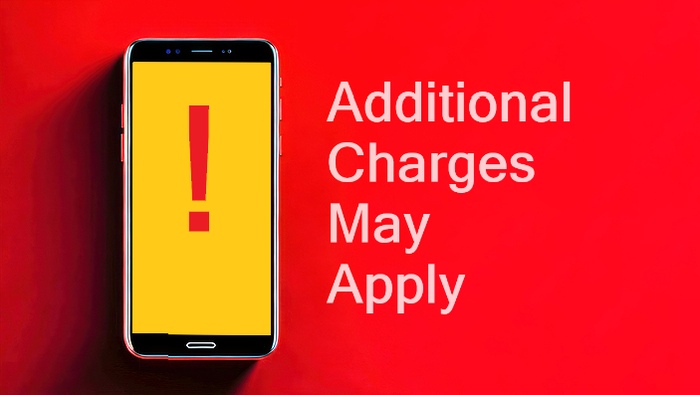 Those relatively new to betting may not really even understand this question but those who have been betting online a long time will very possibly have had some experience of being banned or at least limited by a bookmaker. Unfair as it may seem, betting sites can pick and choose who they accept wagers from and less surprisingly, they tend to prefer people who lose to those who win regularly.
Those relatively new to betting may not really even understand this question but those who have been betting online a long time will very possibly have had some experience of being banned or at least limited by a bookmaker. Unfair as it may seem, betting sites can pick and choose who they accept wagers from and less surprisingly, they tend to prefer people who lose to those who win regularly.
That said, you do not need to be a pro gambler, semi pro, or even just have lots of regular wins to fall foul of the bookmaker’s axe. Bookies will not usually disclose exactly why you have been banned or had your account restricted (meaning you might not be eligible for promotions, are limited to very small stakes, or both). You will typically simply receive an email or message stating that for “commercial reasons” your account has been closed. Alternatively, you may just find you can no longer log in, or that when you try and make any sort of sizeable bet the stake requested is too large.
A combination of factors can lead to this outcome with a “normal” fixed odds bookmaker. Winning is certainly a factor, but so too are betting large amounts on obscure sports and events (especially if you win, and/or the odds the bookie offered were out of line with rival sites). Only using free bets and promotions may also lead to this outcome, whilst so too will bets that make the bookmaker believe you are matched betting, arbing, or using other advantage techniques.
Can You Back and Lay Whatever You Like on an Exchange?

The amounts shown are how much is available to back and lay at each price point
Betting exchanges have traditionally been viewed as one possible solution to being banned or limited. This is chiefly because they are not actually taking the bets and so have less interest in whether you win or lose, or whether you are trying to make wagers that give you a very high chance of success. Exchanges are instead a facilitator – they act as a middleman between those wanting to back a selection and those wanting to lay (bet against) the same outcome.
In exchange for their services the website takes a commission, and as this is always paid no matter what, they do not care which side of the wager wins or loses. Their commission is simply levied on winning bets and with any wager (virtually) there always has to be a loser and a winner.
Exchanges do not, therefore, limit punters to smaller stakes than they would ideally opt to place. The bigger the stake, the bigger the winnings – one way or another – and so the greater their commission. So betting exchanges do not limit stake size and they would seem to have no reason to ban customers or close accounts, right?
Bans Unlikely But Fees Could Increase

Well, in the sense we have so far discussed, it is fair to say that betting exchanges do not ban winning customers. Nor will a streak of wins, no matter how big, or how obscure the markets they are on, see you limited to smaller stakes.
The only thing that stops you from making bigger bets at an exchange is the liquidity available and that is the same for everyone, whether they have just joined, or they are a pro gambler. This is one of the reasons that exchanges have proved so popular with very regular gamblers, those who like to place large bets and punters who believe they can beat the market.
With the above in mind, it is worth noting that a leading exchange in terms of users and revenues, did controversially introduce what some have labelled a tax on winners.
However, in simple terms, when you win very regularly on this exchange, an additional charge, on top of the standard commission, will be levied against your account. Note that this only applies to the exchange, not the company’s many other products. The charge was introduced in 2008 and most people believe it is simply a way for the company to make more money. We won’t get into the ins and outs of that because it isn’t relevant here.
Ultimately though, the point is that this company do effectively charge winning customers more. In 2011 they introduced an even higher premium charge for even more successful customers. So, whilst they don’t ban winning customers, they certainly make life a little less enjoyable for them. This is clearly very different from a ban or other restriction, however, so that’s that, betting exchanges do not ban customers or close accounts … right?
Reasons an Exchange May Close Your Account

Betting exchanges do not close accounts or ban punters for the reasons we have looked at. Which is to say they do not dislike people who are “too good” and can beat the market. If you find a legal, legitimate method of winning on any exchange, you will be left to win. The money is, after all, coming not from the site itself, but from other customers who are using it.
In fact at all exchanges, the more money being won and lost, the better, as, even aside from any premium charges, the more revenue in commission the site is generating, the happier they are, obviously. But there are circumstances where exchanges do ban customers. In fact, there are several reasons why you might see your account get closed down.
In a general sense, all of these largely fall under what some exchanges call “prohibited activity”. In simple language, they have various terms and conditions covering what you can and cannot do and if you engage in the latter, they reserve the right to close your account.
We should point out that genuine punters do not need to worry about this, even if you are a serious or even professional gambler. Whilst regular winners may get hit with a premium charge, that is all that will happen. These rules are not there to catch anyone out and it would be almost impossible to engage in such prohibited behaviour without knowing full well, or at least strongly suspecting, you were doing something wrong.
That said, sites have very long lists of what they do not allow but in general they can be grouped within the following categories.
Fraud
Fraud is a fairly catch-all term that could include opening multiple accounts where it was done deliberately and also insider training and money laundering, both of which we look at more fully too. Fraud would basically include anything that was illegal and potentially also activity that breached one of the site’s specific terms.
Multiple Accounts
One of the most common reasons you may have an account closed is because you have, deliberately or otherwise, opened an account when you already have one. All betting sites include terms specifically limiting accounts to one per person. Historically they have gone much further and limited them to one per household, shared dwelling and even IP address, although this is less common these days.
Nonetheless, whether you simply forgot you had an account and opened another in error, or were deliberately opening a new one to claim another welcome bonus, betting exchanges, like bookmakers, will close at least one of your accounts if they believe you have multiples. There is also a chance they may withhold funds, so we strongly do not recommend opening multiple accounts with the same exchange (or bookmaker).
Security Breach
One time you may have your exchange account closed is when you have been the victim of some form of fraud or security breach. If your account gets hacked or compromised in some other way, the simplest way to secure your information may be for them to close your account and request you reopen a new one. This is quite unusual but we have heard of it happening and this is, in fact, the only time that a bookie will allow you to open ‘multiple’ accounts.
Inactive Accounts
Another time that your exchange account could be closed when you have not done anything wrong is simply if you have not used it for an extended period. Different exchanges have different timeframes for this and these will be detailed in their Ts and Cs, though not always enforced/activated. You should receive an email in advance of the account closure and if you make a bet, deposit, or sometimes even just login, this will avoid your account being closed.
Insider Trading and Suspicious Betting
In 2023 it came to light that several bookie accounts allegedly related to West Ham midfielder (in the sense that they were owned by people who knew the player) Lucas Paqueta had been involved in ‘suspicious betting’. Bookmakers and other betting sites are obliged to report any unusual activity to sporting authorities and they can also use this as a reason for closing your account.
Suspicious betting patterns can cover a wide range of things from the downright illegal, such as match fixing, and even spot fixing, to the slightly greyer areas of insider trading. They can be identified in a host of ways, including an unusual volume of money being traded on a market, a highly unlikely selection being heavily backed (especially if it wins), a flurry of wagers occurring at the same time, especially outside of normal betting hours, a tip off or also by other means.
Insider trading is certainly a grey area: can a footballer tell friends and family they are considering a move to a particular club and yet be held responsible if those people bet on it? Is it insider trading if a boxer lets their friends know they are in incredible shape for a fight? And whilst there are fairly specific rules in horseracing, even they are open to interpretation. Other sports are even less clear on what is and isn’t acceptable, whilst the exchange themself will also have their own opinion on the matter.
Money Laundering Concerns
Any betting site can be used to launder money, with criminal gangs known to have targeted online bookies and exchanges in this way. In fact, many of the largest fines ever handed out to bookies have been for failing to properly prevent this.
Exchanges can be particularly vulnerable to this because two accounts operating in collusion can very easily transfer money from one account to the other, potentially cleaning it in the process. Of course exchanges have measures in place to prevent this, including affordability and proof of income checks, and they could certainly ban you, at the very least, if they suspect you are using their site to launder money.
